Air Gaps for Water Treatment Devices
Air Gaps for Water Treatment Devices
What they are and why you need them
Air gaps are what I call a necessary evil. They are often a pain to install, but when you consider why they are utilized you will understand why they are absolutely necessary.
First of all, what is an air gap? The Water Quality Association Glossary of Terms defines Air Gap as follows:
A clear vertical space between the end of the water treatment device's drain line and the flood level rim of a receptacle which holds water. An air gap is used to prevent cross connection between the water treatment device and a possible source of waste water thereby preventing a reverse flow of water from the sewer into the water supply system. Without an air gap, such reverse flow could occur due to an increase in the pressure in the sewer system or the creation of a negative pressure in the water supply line. Local plumbing codes indicate how wide the air gap needs to be.
The figure below depicts exactly what an air gap accomplishes.
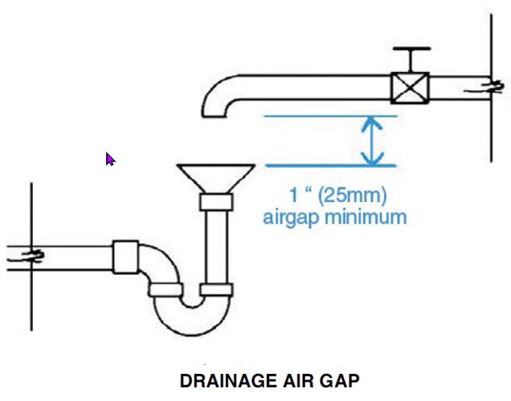
Let me give an example of why an air gap can be the difference between life and death. The following happened in the Midwest a few years ago: A water treatment dealer installed a water softener in a mobile home without an air gap. Somehow, the sanitary sewer line got plugged and backed up into the sinks and other fixtures. At the same time the sewer was backed up, a fire broke out in a neighbors' home.
The fire department was called and put out the fire, but as frequently happens, the amount of water called for by the call for is very high and a fire engine is designed to pump water from a hydrant - generally 1,500 gallons per minute. That was enough to create a vacuum in the supply line which created a suction on the water softener valve causing the sewage in the drain line to back up into the water softener.
When the water came back on, a six-year-old girl evidently drank the water and became very sick from the bacteria. Later, she died, and her parents sued the water treatment dealer for her death. His insurance company refused to cover it with insurance since he was deliberately indifferent and grossly negligent in not following proper installation protocol. The owner of the company lost everything but of course, that did not bring the little girl back to life. It was an avertable tragedy!
Here are some examples of air gaps for different applications:
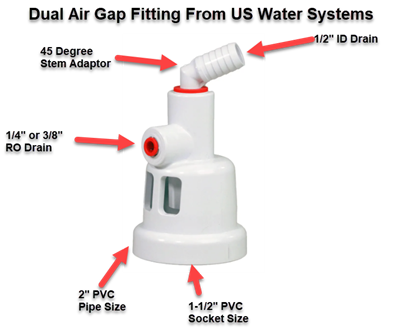
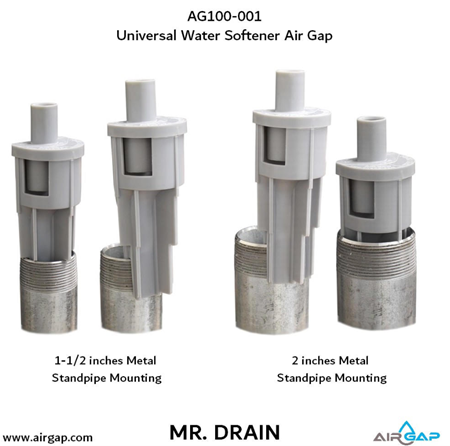
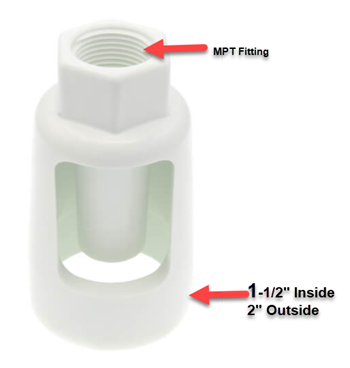
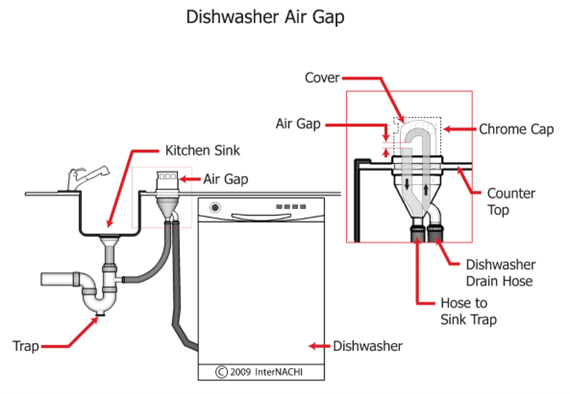
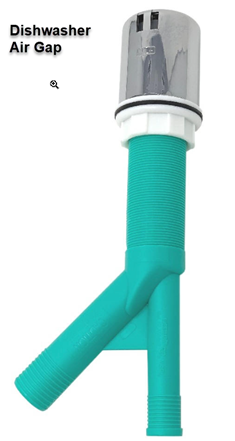
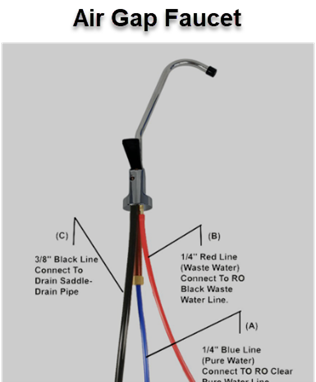
Yes, air gaps are a pain, especially an air gap faucet. A customer can install their softener or RO system any way they want, but at US Water Systems, we have to use Air Gaps - PERIOD!






Leave a comment
Please note, comments need to be approved before they are published.